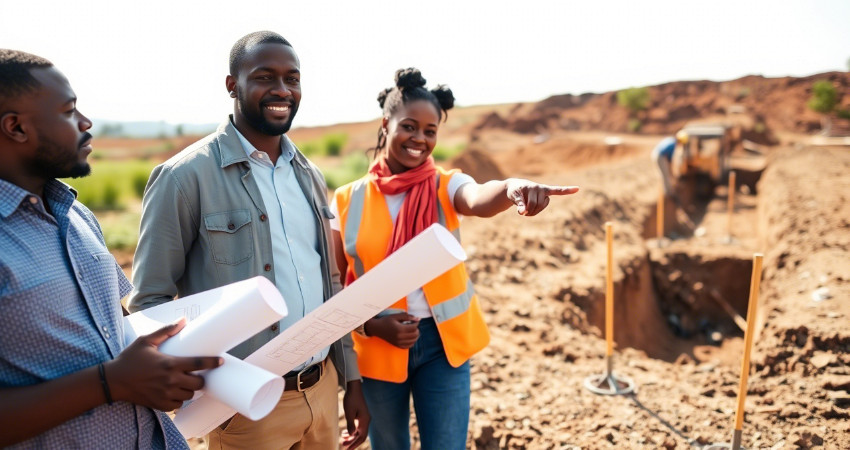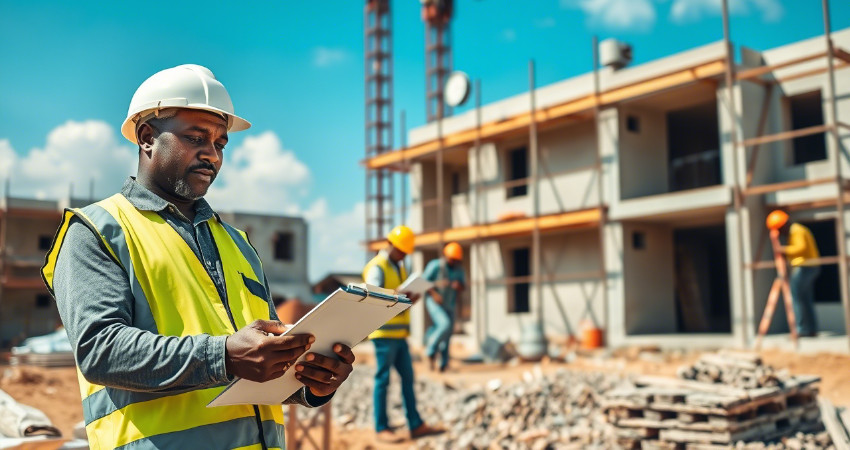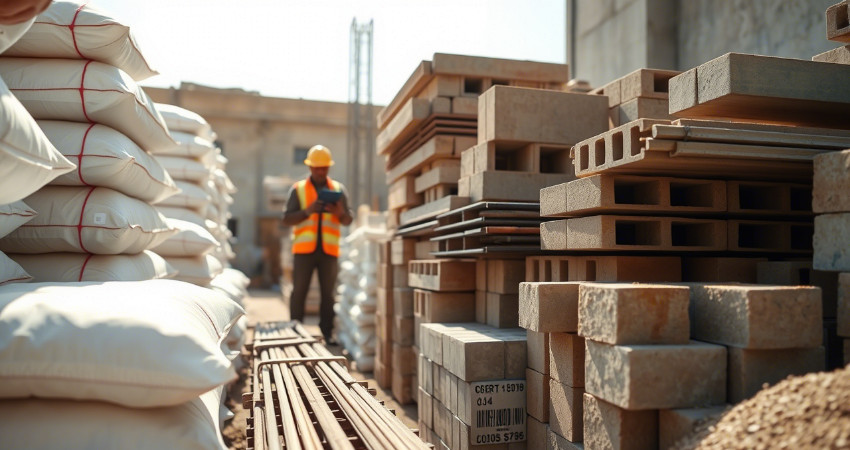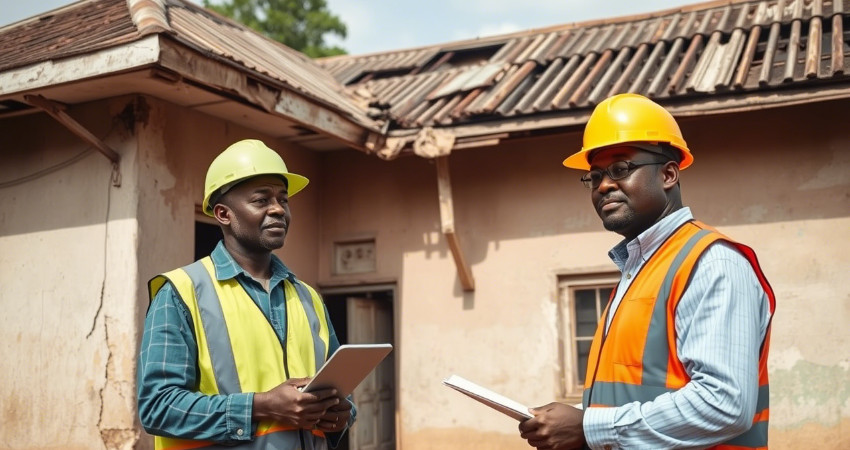
Key Steps to Starting a Building Project in Kenya
Starting a building project in Kenya can feel like a maze. You have to deal with land, permits, plans, and people before you even break ground.
Here’s a step-by-step guide to help you plan well, avoid delays, and build with fewer surprises.
1. Confirm Land Ownership and Suitability
Start with your plot. Is it really yours to build on?
- Do a land search at the Ministry of Lands to confirm the title deed.
- Check the zoning rules for that location—some areas are for residential use only, others for commercial.
- Ask around about access roads, drainage, or boundary disputes.
Always start with the land.
2. Work With a Registered Architect
Don’t download random plans from the internet. Each site is different.
- Hire a licensed architect from BORAQS.
- Let them visit your site before drawing anything.
- Share your budget, purpose, and ideas—they’ll help shape a design that fits.
The architect prepares your site plan, floor plans, elevations, and other drawings. You’ll need these for approvals.
A proper plan saves you from future rework, wasted materials, and regret.
3. Get the Required Approvals
No building should start without permits.
- Submit your drawings to the local county government.
- Pay the approval and inspection fees.
- Get clearance from NEMA if it’s a large project.
Most counties require:
- Architectural and structural drawings
- Land ownership documents
- Survey plan and site layout
Don’t assume your contractor will handle this quietly. Delays or fines from illegal work cost much more.
4. Hire the Right Professionals
You need more than fundis on the site.
- Structural engineer: Checks loads and reinforcement
- Quantity surveyor: Prepares cost estimates and BOQ
- Site supervisor or clerk of works: Oversees daily work
- Contractor: Coordinates labor, materials, and schedule
You don’t need them all full-time, but they play a role at different stages.
Professionals protect your money, your timeline, and your structure.
5. Prepare a Realistic Budget
Know how much you can spend—and break it into stages.
Your budget should include:
- Materials
- Labor
- Permits and approvals
- Transport
- Equipment hire (e.g., concrete mixer, scaffolding)
- Contingency (at least 10%)
Use a quantity surveyor to help with your Bill of Quantities (BOQ).
Don’t fall into the “we’ll start small and see” trap. Many stalled projects in Kenya began with that line. Know the full cost, then decide how to phase it.
6. Choose a Reliable Contractor or Builder
This can make or break your project.
- Ask for referrals and visit past projects.
- Check their NCA registration at nca.go.ke.
- Sign a contract with clear timelines, payment stages, and expectations.
Avoid hiring someone just because they are “known” or they are a family friend to build your house. Work with someone who treats your project like a job, not a favor.
7. Source Quality Materials from Trusted Suppliers
You don’t need the most expensive materials. But don’t go for the cheapest either.
- Confirm that cement, steel, and fittings are KEBS-approved.
- Store materials safely—cement and timber spoil easily.
- Buy in stages to match your work schedule.
Materials are a big part of your budget. Track them like cash.
8. Start With Site Preparation
Now you can break ground.
Start with:
- Clearing the site
- Setting out the foundation points
- Digging trenches
- Bringing in water and power (if needed)
Don’t let fundis guess measurements with tape and sticks. Use a professional surveyor to mark the layout.
Accuracy at this stage avoids structural problems later.
9. Supervise Work Closely
You don’t have to stand on site all day. But someone has to.
- Assign a supervisor or clerk of works.
- Keep a site log: materials delivered, work done, workers present.
- Visit the site regularly for updates.
Supervision makes or breaks your timelines and quality.
10. Keep Your Records
Document everything:
- Receipts
- Permits
- Drawings
- Payments
- Site photos
These help when you need to resell, refinance, or prove compliance.
They also protect you in disputes.
Ask yourself:
- Do I know the full cost of my project?
- Is my land cleared for building?
- Who will check the work every day?
If you don’t have clear answers, don’t start yet.
Planning well doesn’t slow you down. It saves you from getting stuck halfway.
Midfix helps property owners across Kenya start and complete their projects with fewer problems and more peace of mind. If you’re ready to build, let’s start right.






